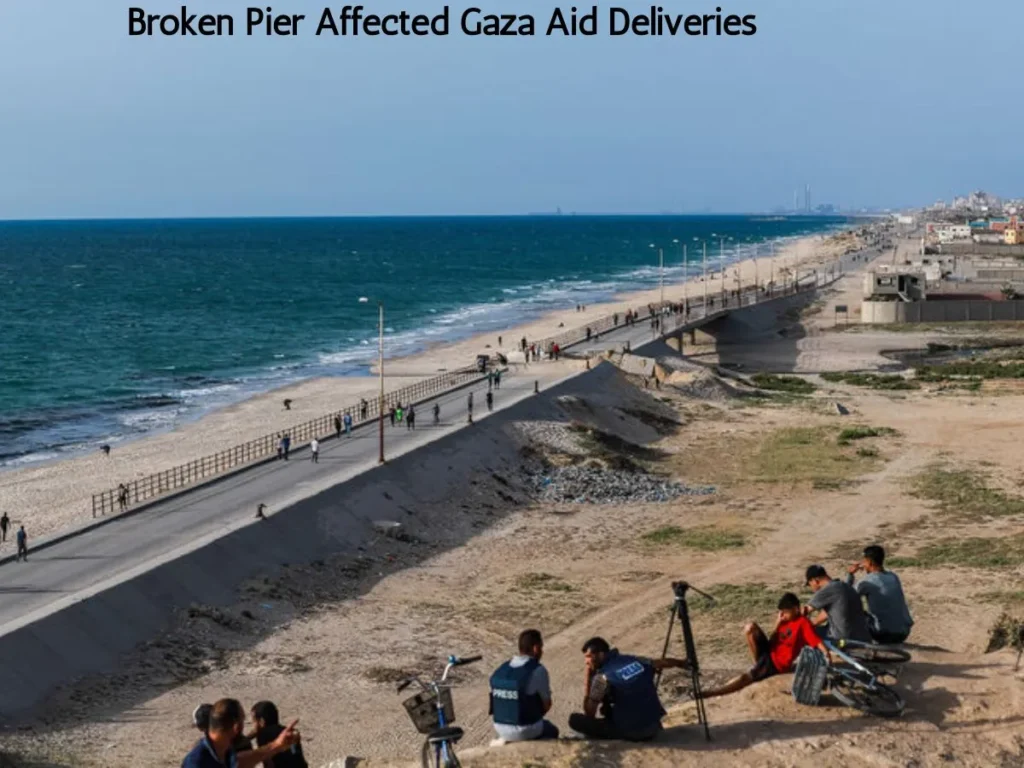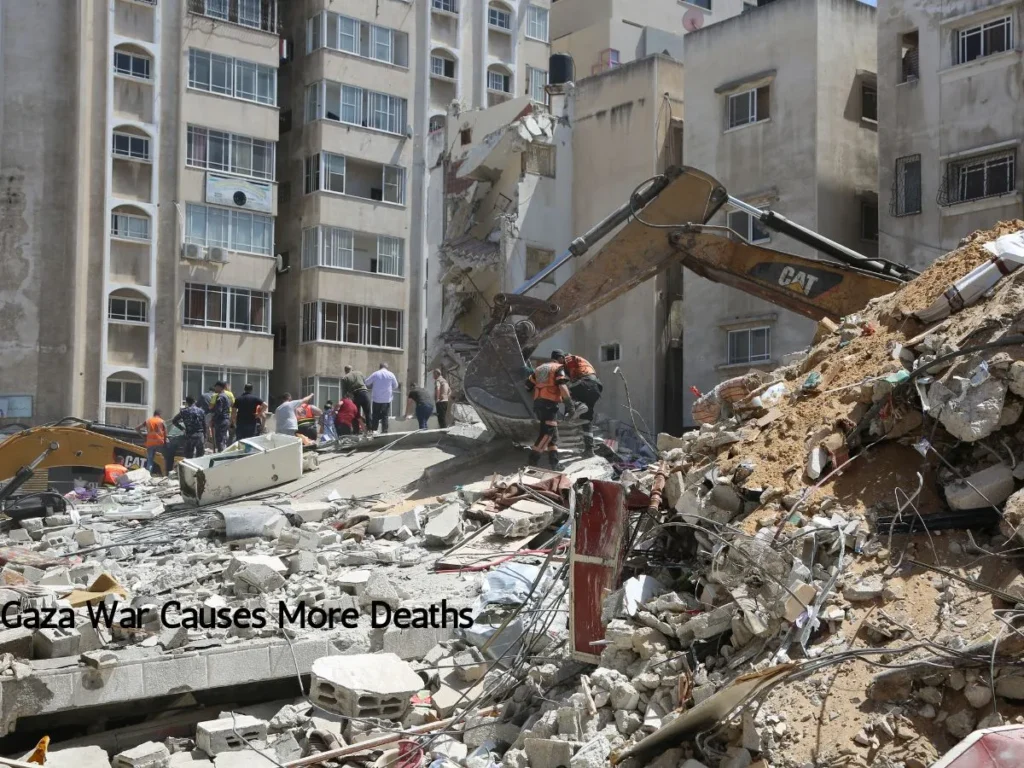
Table of Contents
ToggleTemporary Suspension of Gaza Aid Deliveries Due to Pier Damage
Gaza Aid deliveries halted temporarily after bad weather damages the US-built $320 million pier. Repairs expected to take over a week. In a significant setback for humanitarian efforts in the Gaza Strip, the US-built temporary pier used for aid deliveries has been damaged by severe weather conditions, leading to a temporary suspension of operations. The pier, which cost $320 million and involved the efforts of 1,000 US troops, was a crucial part of the aid delivery mechanism to the war-torn region.
Weather-Induced Damage to the Pier
On Tuesday, Deputy Pentagon Press Secretary Sabrina Singh confirmed that a portion of the Trident Pier had separated due to high sea states and adverse weather conditions originating from the North African system. As a result, the pier sustained significant damage and will need extensive repairs. “Due to high sea states and the North African weather system, a portion of the Trident Pier separated from the anchored structure on the coast of Gaza, causing damage that requires rebuilding and repairing,” Singh stated.
Temporary Removal and Repair Timeline
The damaged pier section will be towed back to Ashdod, Israel, for repairs, which are anticipated to take over a week. The US Central Command will oversee the repair operations. Singh emphasized the pier’s importance in delivering aid, stating, “Upon completion of the repairs, the intention is to re-anchor the temporary pier to the coast of Gaza and resume humanitarian aid deliveries.”
Impact on Humanitarian Aid Operations
The temporary pier was pre-assembled in Ashdod and moved into place on May 18. It was designed to facilitate the delivery of aid commodities from various countries and humanitarian organizations, especially as Gaza lacks its own port infrastructure. The UN and several aid groups have been pressuring Israel to enhance aid efforts in the besieged enclave, heavily impacted by ongoing conflict.
Since its installation, the pier has enabled the transportation of 137 trucks of aid, equivalent to 900 metric tons, according to a UN World Food Programme spokesperson. Despite its vital role, the pier requires very calm sea conditions to operate effectively.
Challenges and Future Operations
Despite the challenges posed by the recent damage, the US remains committed to aiding Gaza. The temporary pier was intended to supplement aid delivered through land crossings between Israel and Gaza. US officials had initially planned to send 90 trucks per day, with the potential to expand to 150 trucks daily.
The damage comes amidst already strained aid delivery efforts. Between May 7 and May 23, only 906 truckloads of aid entered Gaza, far short of the necessary 500 trucks per day required to meet the dire humanitarian needs of the 2.3 million residents.

Conclusion
The suspension of aid deliveries due to the pier’s damage is a temporary but significant hurdle in addressing the humanitarian crisis in Gaza. The repair and reassembly efforts are critical to resuming the flow of essential supplies to the region. The international community continues to urge swift action to restore and enhance aid delivery mechanisms to support the people of Gaza.
FAQs on Gaza Aid Deliveries
Why was the aid delivery pier in Gaza suspended?
The pier was suspended due to damage caused by severe weather conditions, requiring extensive repairs.
How long will the pier repairs take?
Repairs are expected to take over a week, according to the US Defence Department.
What is the significance of the temporary pier?
The temporary pier facilitates the delivery of humanitarian aid to Gaza, which lacks its own port infrastructure.
How much aid has been delivered via the pier?
Since its installation, the pier has enabled the delivery of 137 trucks of aid, equivalent to 900 metric tons.
What are the main challenges in delivering aid to Gaza?
Challenges include damaged infrastructure, severe weather conditions, and ongoing conflict which restricts access through land crossings.